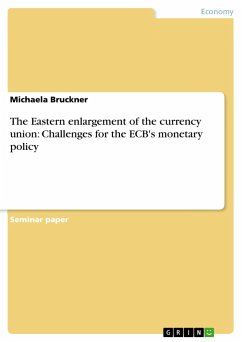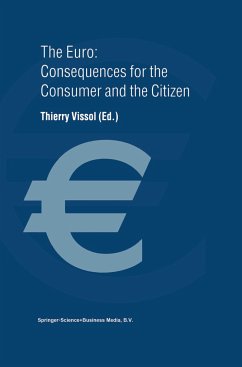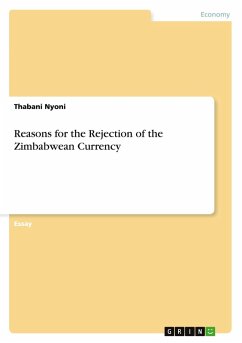
Five years of the euro: "Teuro" or strong currency?

PAYBACK Punkte
0 °P sammeln!
Seminar paper from the year 2007 in the subject Business economics - Economic Policy, grade: 2,7, Friedrich-Alexander University Erlangen-Nuremberg (Lehrstuhl für Auslandswissenschaft), course: Seminar: International Trade, language: English, abstract: The major event of introducing the single currency in 1999 did not have a great effect in daily life because the consumers in all twelve countries were still using their national banknotes and coins in payment transactions. Officially the euro replaced the national currencies, with the national currency units becoming sub-units of the euro but ...
Seminar paper from the year 2007 in the subject Business economics - Economic Policy, grade: 2,7, Friedrich-Alexander University Erlangen-Nuremberg (Lehrstuhl für Auslandswissenschaft), course: Seminar: International Trade, language: English, abstract: The major event of introducing the single currency in 1999 did not have a great effect in daily life because the consumers in all twelve countries were still using their national banknotes and coins in payment transactions. Officially the euro replaced the national currencies, with the national currency units becoming sub-units of the euro but it existed only as scriptural or 'book' money. That meant that first of all especially the world of business and finance began to use the euro in cashless operations. For them the transition happened immediately but on the other side for administrations and business the transition period took longer because they had to change their systems for accounting, pricing and payments over to the euro. To familiarise the people living in the euro-area-countries with the euro, dual pricing on labels was introduced and so the general public recognized the changing.













